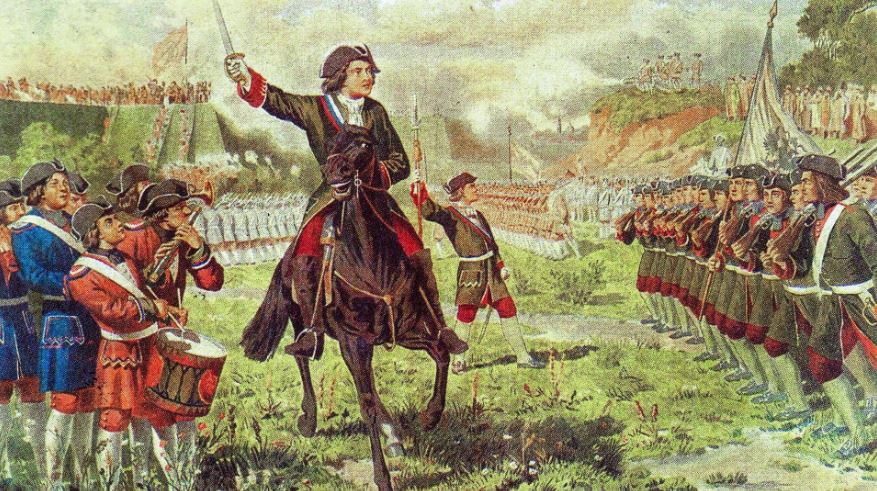Putin’s Associates At The Long Table

The old Kremlinology was one thing – whether Khrushchev or Molotov was standing next to Stalin above Lenin’s tomb may have had meaning – but Vladimir Putin’s Kremlinology is something else.
Putin assures us that he is sitting at his long table next to Peter the Great and Alexander Nevsky, and it looks like Ivan the Terrible is there too. But Khrushchev and Molotov had a record we could (more or less) look at in terms of their climb to Kremlin power, and their other public dealings. The Soviet Union, indeed, was obscure in some ways, but what is important about Putin’s associates is what he thinks their roles and identities were. What he thinks is often at odds with what the rest of us know of history.
Most recently, Putin has invoked Peter the Great to justify a land grab against Ukraine but left out Peter’s opening to Europe. It’s clear that Putin is grabbing at the pieces of Russian history that he feels most comfortable with or that help him justify his war. We don’t know to what degree he believes any of this, nor do we know how much the people around him influence him.
The Great Northern War, which Peter fought with Sweden, is convenient in warning Sweden of its defeat by Russia three centuries back. It also allows Putin once more to talk about the “gathering in of the lands,” code for Russian expansionism. It probably pleases him to compare himself to the 6’8” Peter.
It’s impossible to know how much of this is trolling and how much is genuine belief. Peter’s Great Northern War is a convenient troll against Sweden, but it also reminds Sweden that NATO might help defend against a resurgent Russia. Then there’s the war. It started out on the assumption that Ukraine would be glad to be gathered in, but the conduct of the war has changed radically since Ukraine’s refusal.
Drawing the war back to a grinding slog to acquire more territory in the Donbas and along the Black Sea coast makes sense militarily as a response to the failure of the initial regime change attempt. Wreaking destruction generally across Ukraine also makes a kind of sense. But how does that aid in restoring the empire?
Someone totally and irrationally committed to restoring the empire would be extremely impatient with the current military strategy, although destruction of the uncooperative regions might have a logic of punishment.
It’s hard to discern Putin’s motives. The change in military strategy argues significantly against a coherent reading of his selective Russian history being a major motivator. He wants an enlarged Russia, a colonial Russia. In that regard, another quote from the past week may be more significant:
The world is changing, and it’s changing rapidly. In order to claim some kind of leadership, particularly global leadership, any country, any nation, any ethnic group needs to ensure its sovereignty. The reason is that there is no middle way between being a sovereign country and a colony, no matter what you call a colony. If a country or a group of countries is unable to make sovereign decisions, it means that it already is a colony to a certain extent and colonies historically have no future and stand no chance of surviving a tough geopolitical fight.
We can now add the decolonization of Russia to all the other reconsiderations Putin has provoked.
Cross-posted to Nuclear Diner
